Lawyers could face ‘severe’ penalties for fake AI-generated citations, UK court warns

The High Court of England and Wales says lawyers need to take stronger steps to prevent the misuse of artificial intelligence in their work.
In a ruling tying together two recent cases, Judge Victoria Sharp wrote that generative AI tools like ChatGPT “are not capable of conducting reliable legal research.”
“Such tools can produce apparently coherent and plausible responses to prompts, but those coherent and plausible responses may turn out to be entirely incorrect,” Judge Sharp wrote. “The responses may make confident assertions that are simply untrue.”
That doesn’t mean lawyers cannot use AI in their research, but she said they have a professional duty “to check the accuracy of such research by reference to authoritative sources, before using it in the course of their professional work.”
Judge Sharp suggested that the growing number of cases where lawyers (including, on the U.S. side, lawyers representing major AI platforms) have cited what appear to be AI-generated falsehoods suggests that “more needs to be done to ensure that the guidance is followed and lawyers comply with their duties to the court,” and she said her ruling will be forwarded to professional bodies including the Bar Council and the Law Society.
In one of the cases in question, a lawyer representing a man seeking damages against two banks submitted a filing with 45 citations — 18 of those cases did not exist, while many others “did not contain the quotations that were attributed to them, did not support the propositions for which they were cited, and did not have any relevance to the subject matter of the application,” Judge Sharp said.
In the other, a lawyer representing a man who had been evicted from his London home wrote a court filing citing five cases that did not appear to exist. (The lawyer denied using AI, though she said the citations may have come from AI-generated summaries that appeared in “Google or Safari.”) Judge Sharp said that while the court decided not to initiate contempt proceedings, that is “not a precedent.”
“Lawyers who do not comply with their professional obligations in this respect risk severe sanction,” she added.
Both lawyers were either referred or referred themselves to professional regulators. Judge Sharp noted that when lawyers do not meet their duties to the court, the court’s powers range from “public admonition” to the imposition of costs, contempt proceedings, or even “referral to the police.”
Keep reading the article on Tech Crunch
iOS 19: All the rumored changes Apple could be bringing to its new operating system

As Apple prepares to unveil iOS 19 at WWDC 2025 on Monday, several rumors have surfaced, including a potential new name for the operating system, a dedicated gaming app, and a virtual health coach. This could be a big update, with a dramatic redesign design inspired by the Vision Pro — and more.
Here’s a roundup of the most notable features rumored to be coming to iOS 19.
New name
Sources told Bloomberg that Apple plans to rename its operating systems to reflect the release year rather than using version numbers. This means that iOS 19 will be renamed iOS 26, similar to how car model years are designated. This name change will also apply to other software updates, such as iPadOS 26, macOS 26, watchOS 26, tvOS 26, and visionOS 26.
Major design overhaul
Anticipated to be the most significant design change since iOS 7, the operating system may feature a complete visual overhaul, one that’s reportedly inspired by Apple’s Vision Pro headset, according to Bloomberg. This could include translucent panels for navigation and circular app icons. The visionOS-inspired design will be made across Apple’s entire ecosystem (including CarPlay) with the goal of creating a more cohesive experience.
Additionally, there are three apps expected to undergo the most changes — the Phone app, Camera, and Safari. For instance, the Phone app is rumored to introduce a new option that allows users to merge their favorite contacts, recent calls, and voicemails into a single view. Meanwhile, both the Camera app and Safari are anticipated to have more visual updates, such as a transparent address bar for Apple’s browser app.
Dedicated gaming app
Apple is also rumored to be releasing a gaming app that will integrate Apple Arcade and the App Store’s game offerings, featuring a central hub for achievements, leaderboards, and App Store content. This comes after the company acquired its first game studio, RAC7, according to DigitalTrends.
Virtual health coach
Apple may also be developing an AI feature to serve as a personal health coach. This new chatbot is expected to suggest lifestyle changes and provide health advice based on user data collected from the Health app. Additionally, the Health app may be revamped to include a food-tracking feature, allowing users to log their carbohydrate and caffeine intake.
Smarter battery management
Apple could improve iPhone battery health with AI-powered battery management. This new feature is reported to analyze device usage and make adjustments to conserve battery life. There may also be a new charging icon on the lock screen that gives an estimated time for when it’s fully charged.
Another rumor suggests that reverse wireless charging is being tested on the iPhone 17 Pro models, allowing users to charge accessories such as AirPods or the Apple Watch directly from their iPhone.
AI translation for Messages
According to 9to5Mac, the Messages app is set to get an Apple Intelligence-powered translation feature that can automatically translate messages as soon as they hit users’ inboxes. 9to5Mac also reports that Apple Intelligence could power a polling feature that lets people in group chats vote and offers AI-generated poll suggestions.
Additionally, Messages may also add the ability to set a background image, following in the footsteps of WhatsApp and Instagram.
Preview app
Apple may bring its Preview app from macOS to iPad and iPhone users, allowing them to annotate and edit PDFs. This will reportedly be a preinstalled app, per Bloomberg.
New Genmoji feature
As Bloomberg reports, Genmoji could gain a small yet exciting feature that allows users to combine existing standard emojis, such as a basketball going into a trash can.
What about Siri?
One notable absence from all the rumors is the impressive Siri capabilities highlighted in Apple’s 2024 presentation, which featured a more context-aware assistant that can gather information and perform actions across different apps. The company stated in March that the new features are delayed.
While we can expect some AI-related announcements, the primary focus is likely to be on design changes. Reports indicate that improvements to existing Apple Intelligence features will also be introduced, along with some new additions.
This story was originally published June 3 and will be updated as more rumors come out.
Keep reading the article on Tech Crunch
Trump administration takes aim at Biden and Obama cybersecurity rules

President Donald Trump signed an executive order Friday that revises and rolls back cybersecurity policies set in place by his Democratic predecessors, Barack Obama and Joe Biden.
In a White House fact sheet, the administration claims that Biden’s Executive Order 14144 — signed days before the end of his presidency — was an attempt “to sneak problematic and distracting issues into cybersecurity policy.”
Among other things, Biden’s order encouraged agencies to “consider accepting digital identity documents” when public benefit programs require ID. Trump struck that part of the order, with the White House now saying this approach risks “widespread abuse by enabling illegal immigrants to improperly access public benefits.”
However, Mark Montgomery, senior director of the Foundation for Defense of Democracies’ Center on Cyber and Technology Innovation, told Politico that “the fixation on revoking digital ID mandates is prioritizing questionable immigration benefits over proven cybersecurity benefits.”
On AI, Trump removed Biden’s requirements around testing the use of AI to defend energy infrastructure, funding federal research programs around AI security, and directing the Pentagon to “use AI models for cyber security.”
The White House describes its moves on AI as refocusing AI cybersecurity strategy “towards identifying and managing vulnerabilities, rather than censorship.” (Trump’s Silicon Valley allies have complained repeatedly about the threat of AI “censorship.”)
Trump’s order also removed requirements that agencies start using quantum-resistant encryption “as soon as practicable.” And it removed requirements that federal contractors attest to the security of their software — the White House describes those requirements as “unproven and burdensome software accounting processes that prioritized compliance checklists over genuine security investments.”
Going back even further, Trump’s executive order repeals Obama’s policies around sanctions for cybersecurity attacks on the United States; those sanctions can now only be applied to “foreign malicious actors.” The White House says this will will prevent “misuse against domestic political opponents” and clarify that “sanctions do not apply to election-related activities.”
Keep reading the article on Tech Crunch
WWDC 2025: What to expect from this year’s conference
WWDC 2025, Apple’s annual developers conference, starts at 10 a.m. PT / 1 p.m. ET. Monday. Last year’s event was notable for its focus on AI, and this year, there is considerable pressure on the company to build on its promises, and to change the narrative after months of largely negative headlines.
As in previous years, the company will focus on software updates and new technologies, including the next version of iOS, which is rumored to have the most significant design changes since the introduction of iOS 7. But iOS 19 (or 26, if other rumors about the new naming system are true) isn’t the only thing the company will announce at WWDC 2025.
Here’s how you can watch the keynote livestream.
iOS is getting the most dramatic design change in over a decade
When Apple introduced a major overhaul to iOS back in 2013 with the launch of iOS 7, it felt jarring for many users with the shift from the prior skeuomorphic design with gradients and real-world textures to the more colorful, but flat, design style that reflected Apple’s then chief design officer Jony Ive’s taste for minimalism.
Now, new reports suggest that an upcoming redesign could provoke a similar level of reaction.
Reports suggest the new design may have elements referencing visionOS, the software powering Apple’s spatial computing headset, the Apple Vision Pro. If true, that means the new OS could feature a transparent interface and more circular app icons that break away from the traditional square format today.
This visual redesign could be implemented across all of Apple’s ecosystem (including even CarPlay), according to Bloomberg, providing a more seamless experience for consumers moving between their different devices.
iOS will change its naming system
According to Bloomberg, Apple will announce a change in the naming system for iOS at this year’s WWDC. Instead of announcing the next version of iOS as iOS 19, Apple’s operating systems will shift to being named by year. That means we could be set to see the launch of iOS 26 instead, alongside the OSes for other products, including adOS 26, macOS 26, watchOS 26, tvOS 26, and visionOS 26.
Apple may keep the AI news light this year
While it might be challenging to top the news related to Apple Intelligence at WWDC 2024, the company is expected to share a few updates on the AI front.
The company has seemingly been caught flat-footed in the AI race, making announcements about AI capabilities that had yet to ship, leading even some Apple pundits to accuse the company of touting vaporware. While Apple has launched several AI tools like Image Playground, Genmoji, Writing Tools, Photos Clean Up, and more, its promise of an improved Siri, personalized to the end user and able to take action across your apps, has been delayed.
Meanwhile, Apple has turned to outside companies like OpenAI to give its iPhone a boost in terms of its AI capabilities. At WWDC, it may announce support for other AI chatbots, as well. With Jony Ive now working with Sam Altman on an AI hardware device, Apple is under pressure to catch up on AI progress.

In addition, reports suggest that Apple’s Health app could soon incorporate AI technology, which could include a health chatbot and generative AI insights that provide personalized health-related suggestions based on user data. Additionally, other apps, such as Messages, may receive enhancements with AI capabilities, including a translation feature and polls that offer AI-generated suggestions, per 9to5Mac.
Apple will likely make the most of a number of smaller OS updates that involve AI, given its underwhelming progress. Reports suggest that these updates could include AI-powered battery management features and an AI-powered Shortcuts app, for instance.
iPhone users may get a dedicated gaming app
Bloomberg confirmed a 9to5Mac report that said Apple is developing a dedicated gaming app that will replace the aging Game Center app. The app could include access to Apple Arcade’s subscription-based game store, plus other gaming features like leaderboards, recommendations, and ways to challenge your friends. It could also integrate with iMessage or FaceTime for remote gaming.

Updates to Mac, Watch, TV, and more
Along with the new design, reports suggest that Apple’s other operating systems will get some polish, too. For instance, macOS may also see the new gaming app and benefit from the new AirPods features. It’s also expected to be named macOS Tahoe, in keeping with Apple’s naming convention that references California landmarks.
Apple TV may get a visual overhaul, but also , the new gaming app, and other features.
AirPods to get new features
In addition to Messages getting a translation feature, Bloomberg reported that Apple could also bring a live-translate language feature to its AirPods wireless Bluetooth earbuds, allowing real-time translation during conversations. The iPhone will translate spoken words from another language for the user and will also translate the user’s response back into that language.
A new report from 9to5Mac also suggests that AirPods may get new head gestures to complement today’s ability to either nod or shake your head to respond to incoming calls or messages. Plus, AirPods may get features to auto-pause music after you fall asleep, a way to trigger the camera via Camera Control with a touch, a studio-quality mic mode, and an improved pairing experience in shared AirPods.

Apple Pencil upgrade
According to reports, the Apple Pencil is also receiving a new update, one that will benefit users who wish to write in Arabic script. In an effort to cater to customers in UAE, Saudi Arabia, and India, Apple is reportedly launching a new virtual calligraphy feature in iPadOS 19. The company may also introduce a bi-directional keyboard so users can switch between Arabic and English on iPhones and iPads.
No hardware announcements?
There haven’t been any rumors regarding new devices, because no hardware is ready for release yet, according to Bloomberg. Although it’s always possible that the company will surprise us with a new Mac Pro announcement, most reports are saying this is highly unlikely at this point.
Some reports indicate that Apple may also announce support for a new input device for its Vision Pro: spatial controllers. The devices would be motion-aware and designed with interaction in a 3D environment in mind, 9to5Mac says. In addition, Vision Pro could get eye-scrolling support, enabling users to scroll through documents on both native and third-party apps.
Bloomberg had reported in November that Apple was expected to announce a smart home tablet in March 2025, featuring a 6-inch touchscreen and voice-activated controls. The device was said to include support for Home Control, Siri, and video calls, but has yet to launch. Following the discovery of a filing for “HomeOS” by PMC’s Parker Ortolani, speculation has arisen that Apple may unveil the software for the device at WWDC.
Keep reading the article on Tech Crunch
Week in Review: Why Anthropic cut access to Windsurf
Welcome back to Week in Review! Got lots for you today, including why Windsurf lost access to Claude, ChatGPT’s new features, WWDC 2025, Elon Musk’s fight with Donald Trump, and lots more. Have a great weekend!
Duh: During an interview at TC Sessions: AI 2025, Anthropic’s co-founder had a perfectly reasonable explanation for why the company cut access to Windsurf: “I think it would be odd for us to be selling Claude to OpenAI,” Chief Science Officer Jared Kaplan said, referring to rumors and reports that OpenAI, its largest competitor, is acquiring the AI coding assistant. Seems like a good reason to me!
Everything is the same: Chinese lab DeepSeek released an updated version of its R1 reasoning AI model last week that performs well on a number of math and coding benchmarks. Now some AI researchers are speculating that at least some of the source data it trained on came from Google’s Gemini family of AI.
WWDC 2025: Apple’s annual developers conference starts Monday. Beyond a newly designed operating system, here’s what we’re expecting to see at this year’s event, including a dedicated gaming app and updates to Mac, Watch, TV, and more.
This is TechCrunch’s Week in Review, where we recap the week’s biggest news. Want this delivered as a newsletter to your inbox every Saturday? Sign up here.
News

Business in the front: ChatGPT is getting new features for business users, including connectors for Dropbox, Box, SharePoint, OneDrive, and Google Drive. This would let ChatGPT look for information across your own services to answer questions.
Oh no: Indian grocery delivery startup KiranaPro was hacked, and all of its data was wiped. According to the company, it has 55,000 customers, with 30,000 to 35,000 active buyers across 50 cities, who collectively place 2,000 orders daily.
Artsy people, rejoice! Photoshop is now coming to Android, so users of Google’s operating system can gussy up their images, too. The app has a similar set of editing tools as the desktop version, including layering and masking.
Let’s try that again: Tesla filed new trademark applications for “Tesla Robotaxi” after previous attempts to trademark the terms “Robotaxi” and “Cybercab” failed.
Rolling in dough: Tech startup Anduril just picked up a $1 billion investment as part of a new $2.5 billion raise led by Founders Fund, which means Anduril has doubled its valuation to $30.5 billion.
On the road again: When Toma’s founders realized car dealerships were drowning in missed calls, they hit the road to see the problem firsthand. That summer road trip turned into a $17 million a16z-backed fundraise that helped Toma get its AI phone agents into more than 100 dealerships across the U.S.
Fighting season: All gloves were off on Thursday as Elon Musk and President Trump took to their respective social networks to throw jabs at each other. Though it might be exciting to watch rich men squabble in public, the fallout between the world’s richest person and a sitting U.S. president promises to have broader implications for the tech industry.
Analysis

Money talks: Whether you use AI as a friend, a therapist, or even a girlfriend, chatbots are trained to keep you talking. For Big Tech companies, it’s never been more competitive to attract users to their chatbot platforms — and keep them there.
Keep reading the article on Tech Crunch
Will Musk vs. Trump affect xAI’s $5 billion debt deal?

While the online feud between Elon Musk and President Donald Trump seemed to drive traffic to Musk’s social media platform X (formerly Twitter), it could also create issues for the platform’s parent company xAI.
Musk merged X and xAI earlier this year, with Bloomberg reporting this week that he was looking to raise $5 billion in debt (as well as a reported $300 million in a secondary sale) to fund the combined company.
That’s led to some awkward moments as Musk’s relationship with his former ally Trump seemed to disintegrate. In fact, The Wall Street Journal reports that on Thursday afternoon, Morgan Stanley had gathered xAI executives to pitch potential investors as Musk and Trump were posting angrily about each other on their respective social networks.
Morgan Stanley had reportedly hoped to sell the debt at around 100 cents on the dollar, but a trader told the WSJ it was trading at 95 cents on the dollar at times on Thursday. Investors also reportedly said that due to declining prices, Morgan Stanley may need to offer additional incentives, such as an increased interest rate.
Keep reading the article on Tech Crunch
Superblocks CEO: How to find a unicorn idea by studying AI system prompts

Brad Menezes, CEO of enterprise vibe coding startup Superblocks, believes the next crop of billion-dollar startup ideas are hiding in almost plain sight: the system prompts used by existing unicorn AI startups.
System prompts are the lengthy prompts — over 5,000-6,000 words — that AI startups use to instruct the foundational models from companies like OpenAI or Anthropic on how to generate their application-level AI products. They are, in Menezes view, like a master class in prompt engineering.
“Every single company has a completely different system prompt for the same [foundational] model,” he told TechCrunch. “They’re trying to get the model to do exactly what’s required for a specific domain, specific tasks.”
System prompts aren’t exactly hidden. Customers can ask many AI tools to share theirs. But they aren’t always publicly available.
So as part of his own startup’s new product announcement of an enterprise coding AI agent named Clark, Superblocks offered to share a file of 19 system prompts from some of the most popular AI coding products like Windsurf, Manus, Cursor, Lovable and Bolt.
Menezes’s tweet went viral, viewed by almost 2 million including big names in the Valley like Sam Blond, formerly of Founders Fund and Brex, and Aaron Levie, a Superblocks investor. Superblocks announced last week that it raised a $23 million Series A, bringing its total to $60 million for its vibe coding tools geared to non-developers at enterprises.
So we asked Menezes to walk us through how to study other’s system prompts to glean insights.
“I’d say the biggest learning for us building Clark and reading through the system prompts is that the system prompt itself is maybe 20% of the secret sauce,” Menezes explained. This prompt gives the LLM the baseline of what to do.
The other 80% is “prompt enrichment” he said, which is the infrastructure a startup builds around the calls to the LLM. That part includes instructions it attaches to a user’s prompt, and actions taken when returning the response, such as checking for accuracy.
Roles, context and tools
He said there are three parts of system prompts to study: role prompting, contextual prompting, and tool use.
The first thing to notice is that, while system prompts are written in natural language, they are exceptionally specific. “You basically have to speak as if you would to a human co-worker,” Menezes said. “And the instructions have to be perfect.”
Role prompting helps the LLMs be consistent, giving both purpose and personality. For instance, Devin’s begins with, “You are Devin, a software engineer using a real computer operating system. You are a real code-wiz: few programmers are as talented as you at understanding codebases, writing functional and clean code, and iterating on your changes until they are correct.”
Contextual prompting gives the models the context to consider before acting. It should provide guardrails that can, for instance, reduce costs and ensure clarity on tasks.
Cursor’s instructs, “Only call tools when needed, and never mention tool names to the user — just describe what you’re doing. … don’t show code unless asked. … Read relevant file content before editing and fix clear errors, but don’t guess or loop fixes more than three times.”
Tool use enables agentic tasks because it instructs the models how to go beyond just generating text. Replit’s, for instance, is long and describes editing and searching code, installing languages, setting up and querying PostgreSQL databases, executing shell commands and more.
Studying others’ system prompts helped Menezes see what other vibe coders emphasized. Tools like Loveable, V0, and Bolt “focus on fast iteration,” he said, whereas “Manus, Devin, OpenAI Codex, and Replit” help users create full-stack applications but “the output is still raw code.”
Menezes saw an opportunity to let non-programmers write apps, if his startup could handle more, such as security and access to enterprise data sources like Salesforce.
While he’s not yet running the multi-billion startup of his dreams, Superblock has landed some notable companies as customers, it said, including Instacart and Paypaya Global.
Menezes is also dogfooding the product internally. His software engineers are not allowed to write internal tools; they can only build the product. So his business folks have built agents for all their needs, like one that uses CRM data to identify leads, one that tracks support metrics, another that balance the assignments of the human sales engineers.
“This is basically a way for us to build the tools and not buy the tools,” he sais.
Keep reading the article on Tech Crunch
If You Own a PS5, the PlayStation DualSense Controller Now Costs Peanuts on Amazon

If you own a PS5, having multiple controllers is almost a necessity as there’s nothing better than sharing your favorite PlayStation games with friends or family in the same room. While it’s always wise to have a spare controller ready for multiplayer sessions or simply as a backup, genuine discounts on the PlayStation DualSense wireless controller are rare.
Even during Black Friday, major promotions were hard to find which makes this moment the perfect opportunity to add another controller to your setup. Right now, the PlayStation DualSense controller is available on Amazon for just $54 which is a substantial 27% off its usual $74 price. This limited-time deal marks an all-time low, so it’s an ideal time to buy, especially if you missed out on previous sales.
Why We Love It
The biggest feature of the DualSense controler is haptic feedback which puts the feel of in-game action and environments right in your hands. Whether you’re racing down rough roads, wielding guns or feeling the crash of a collision, the controller’s next-gen vibration motors plunge you further into the game.
Aside from the haptic feedback, adaptive triggers provide varying levels of force and tension so that you can feel the distinction between drawing back a bowstring or slamming on the brakes in a racing title. They work together to create a feeling of realism and immersion that was not achievable on previous PlayStation controllers.
The built-in microphone allows you to chat online without a headset and the 3.5mm audio jack allows you to plug in your favorite headphones for individual use. The create button is convenient to use to capture and stream your most excellent gaming moments in case you’re playing with buddies or capturing highlights to playback later. The controller’s iconic appearance has been fine-tuned for comfort with enhanced sticks and an intuitive layout that feels great in your hand even after long gaming sessions.
DualSense isn’t only for PlayStation 5 gamers: With its USB Type-C and Bluetooth connectivity, you can easily play it on Windows desktops and Macs too which gives you even more gaming possibilities outside of the console. Most high-end PC games currently support advanced features like haptic feedback and adaptive triggers, which lets you experience the same immersive experience playing from your computer.
With over 33,000 reviews and a lovely 4.6 out of 5-star rating, the PlayStation DualSense Wireless Controller is a proven winner among gamers. Don’t hesitate too much: These sales don’t come around often, and the stock may not be here.
AirTag 4 Pack Is Priced at Black Friday Levels, Amazon is Selling Off Its Stock Until Every Last One Is Gone

When it comes to keeping track of your valuables, there’s simply no better solution than Apple’s AirTag and what’s even more better is that it stands out as one of the most affordable and practical products in Apple’s lineup. Whether you’re worried about losing your keys, wallet, or luggage, AirTags offer peace of mind at a price that’s hard to beat.
Right now, Amazon is running a great deal on the Apple AirTag 4 pack and offers it at an all-time low of $74 which is a 24% discount off the usual $99 list price. This is great if you’re looking to secure multiple items, and it’s especially appealing compared to other Apple products, which often come with a much higher price tag.
Very Easy to Use
Setting up an AirTag is incredibly straightforward and requires just a single tap to connect it to your iPhone or iPad. Once paired, you can use the Find My app to keep tabs on your belongings whether they’re in your pocket or halfway across town. The integration with Apple’s ecosystem is seamless and allows you to track your items alongside your friends’ devices and your own Apple products. If you misplace something nearby, you can play a sound on the AirTag’s built-in speaker to help locate it quickly. Even better, you can simply ask Siri for help, and your iPhone will guide you right to your lost item.
You will love the Precision Finding tool which is powered by Ultra Wideband technology: This advanced feature is available on select iPhone models, provides precise, on-screen directions that lead you directly to your AirTag. It’s like having a personal guide that points you in the right direction, down to the exact spot where your item is located. For items that are further away, the AirTag taps into the vast Find My network, leveraging hundreds of millions of Apple devices around the world to help you locate your lost belongings.
The AirTag is also designed with durability in mind, boasting an IP67 water and dust resistance rating. This means it can withstand splashes, rain, and even brief submersion, making it reliable in a variety of environments. The replaceable battery lasts over a year, so you won’t have to worry about frequent maintenance or unexpected downtime.
With a stellar 4.7 out of 5-star rating from over 23,000 reviews, the Apple AirTag 4 Pack has proven to be a favorite among users. Don’t miss out on this limited-time offer.
The Best Sci-Fi, Fantasy, and Horror Trailers at Summer Game Fest 2025

Every year, Summer Game Fest is home to plenty of trailers for all sorts of games, be they major titles or small ones, right around the corner and who knows how far off. We’ve got a list of the biggest ones in the 2025 showcase, plus those that caught our eye for one reason or another. Let us know your faves in the comments below.
Code Vein II
Bandai Namco had a few flashy action games at Summer Game Fest, and the biggest was Code Vein II. The sequel to 2019’s action-RPG will tell a story across two eras and star the player-made Hunter tasked with disposing of Revenants (undead humans with vampiric powers) that’ve morphed into monsters called Horrors. With the help of a girl named Lou, the Hunter travels across time to change the fates of key Revenants who could help alter the future for the better.
Code Vein II releases in 2026 for PC, XSX|S, and PS5.
End of Abyss
From new developer Section 9 Interactive, End of Abyss is set in a dark sci-fi world where technician Cel investigates a series of disturbances in an underground compound. Said disturbances include ominous audio logs, something strange on the walls, and monsters around the area, some of which can multiply. Look for End of Abyss to hit in 2026 for PS5, XSX|S, and PC on the Epic Games Store.
Atomic Heart II & The Cube
Remember Atomic Heart from a few years ago? It’s getting two continuations from developer Mundfish. The first, Atomic Heart II, is billed as a “spiritual successor” to the first game, and will feature more RPG elements for players to dig into while exploring the series’ retrofuturist alt-history universe.
Then there’s The Cube, an open-world MMO wherein players explore an ever-changing structure and face enemies to get more gear, get higher numbers, and do it all again. Neither it nor Atomic Heart II have set dates, but when they do, they’ll presumably release for PC, PS5, and XSX|S.
Marvel Cosmic Invasion
Summer Game Fest featured a trailer for Cosmic Invasion showing two new heroes coming to the 2D beat-em-up: She-Hulk and Rocket Raccoon. (Noticeably sans Groot, unlike the duo’s recent appearances in Marvel Rivals and Guardians of the Galaxy.) Jen’s got her strength, Rocket’s got his claws and guns, they’re both helping the previously revealed heroes like Quasar, Storm, and Spider-Man repel the Annihilation Wave moving through the galaxy.
Marvel Cosmic Invasion releases on PS4 and 5, XSX|S, and PC later this year.
Onimusha: Way of the Sword
Capcom’s looking to bring back some franchises it’s left behind in recent years, starting with Onimusha. We already knew the next entry, Way of the Sword, sees protagonist Musashi use his katana to slice up demonic Genma in Edo-era Japan. But the new trailer introduces his rival Sasaki Ganryu and reveals the Oni Gauntlet around Musashi’s wrist lets him summon a young woman to talk to. What else can the Gauntlet do, and why do he and Ganryu have them? We’ll find out when Onimusha: Way of the Sword comes in 2026 for PC and consoles.
Wu-Tang: Rise of the Deceiver
Even if you don’t listen to hip-hop, you surely know Wu-Tang Clan or its members by reputation. Developer Brass Lion Entertainment’s Rise of the Deceiver asks players a very important question: how would you like to save Ghostface Killah’s Wu brothers, then fight alongside them and use their powers against the titular Deceiver? If that sounds fun to you, the co-op action-RPG—featuring writing from io9 alum Evan Narcisse—is hitting PC sometime in 2026.
Mio: Memories in Orbit
For the Metroidvania fans, Mio: Memories in Orbit made an appearance at the event. In it, players explore the massive technological ark known as the Vessel, which is home to rogue machines. It falls to Mio to save the Vessel’s residents while hacking the machines to bits and gaining new abilites to explore the space station when the game comes out later this year for PC, Nintendo Switch, Xbox One and X|S, and PS4 and 5. There’s a free demo on Steam, which you can play here.
Fractured Blooms
Described as a cross between Doki Doki Literature Club and Silent Hill, Serenity Forge’s Fractured Blooms stars Angie, a girl stuck in a time loop. While figuring out how to break it, she cooks, grows food, and helps the locals, all of which may be key to figuring out how to get to the next day. But with each new loop comes some kind of shift in the day, like someone remembering Angie’s past actions, or the cycle pushing back against her. Should any of that intrigue you, Fractured Blooms will release on PC in the near future.
Mina the Hollower
Yacht Club Games’ debut title was 2014’s Shovel Knight, and it was so big the studio expanded on it with several post-launch campaigns and spinoff titles. The studio’s next project, Mina the Hollower, is a top-down action-adventure starring a genius mouse inventor studying the Earth. With her whip and “hollowing” ability that lets her move quickly underground, Mina explores Tenebrous Isle and looks to free it from its curse.
Mina the Hollower releases October 31 for PC, Xbox One and X|S, Nintendo Switch, and PS4 and 5. There’s a free demo out now for Steam players on PC, which you can download here.
Deadpool VR
It’s been over a decade since Deadpool headlined a solo game, now here he is back in the spotlight for a VR title. Meta Quest 3 and 3S owners will inhabit the Merc With a Mouth as he kills enemies, cracks wise, and swears in the voice of Neil Patrick Harris while visiting different locations across the Marvel Universe. VR and the first-person perspective also offers creative, Wade-like ways to kill enemies, from simply shooting or stabbing them to shoving their face into a propeller or feeding them to a monster.
Deadpool VR launches in late 2025.
Scott Pilgrim EX
Scott Pilgrim’s story never truly ends. Developer Tribute unveiled Scott Pilgrim EX at Summer Game Fest, which sees Scott and Ramona Flowers team up with five other playable characters to fight the Vegans, Robots, and Goths that’ve taken over Toronto. EX looks to be a sequel to Netflix’s Scott Pilgrim Takes Off, and has that show’s co-creators Bryan Lee O’Malley (who created the original comic) and BenDavid Grabinski involved. Also along for the ride are animator Paul Robertson and musician Anamanaguchi, who both contributed to Ubisoft’s cult classic tie-in game (also a beat-em-up!) from 2010.
Scott Pilgrim EX comes to PC and consoles in 2026.
Ill
From Team Clout and Mundfish Powerhouse, the first-person horror game Ill has plenty of zombies (both clothed and naked), gore, and body horror to make clear it’s gonna be a freaky time. If that weren’t enough, a swarm of zombie babies rushing the player might underline things. Fortunately, you can kick those little terrors away. Unfortunately, there’s plenty of other hostile stuff that wants to kill you in the research fort you’re exploring when the game comes out for PC, PS5, and XSX|S in the near future.
Infinitesimals
First-time developer Cubit Studios revealed Infinitesimals, and like the name implies, stars small characters waging a big war against one another. Captain Awkney’s hoping to find a new home for his people, and to do that, he’ll have to fight enemy soldiers his own size and bigger animals like ants, birds, and spiders. It looks like Halo mixed with A Bug’s Life, and it’s coming to Epic Games Store, PS5, and XSX|S in 2026.
Resident Evil: Requiem
Closing out Summer Game Fest was Resident Evil Requiem, the ninth mainline game in the survival horror series. FBI agent Grace Ashcroft—daughter of Resident Evil Outbreak’s Alyssa—is tasked with looking into an incident at a hotel that also happens to be where her mother was killed. Things aren’t right at the hotel, and Grace is gonna be through hell. And that’s just the start, as part of her journey might involve a trip back to the bombed Racoon City.
We’ll see what terrors there await when Resident Evil Requiem comes out on February 27, 2026 for PC, XSX|S, and PS5.
Want more io9 news? Check out when to expect the latest Marvel, Star Wars, and Star Trek releases, what’s next for the DC Universe on film and TV, and everything you need to know about the future of Doctor Who.
After its data was wiped, KiranaPro’s co-founder cannot rule out an external hack
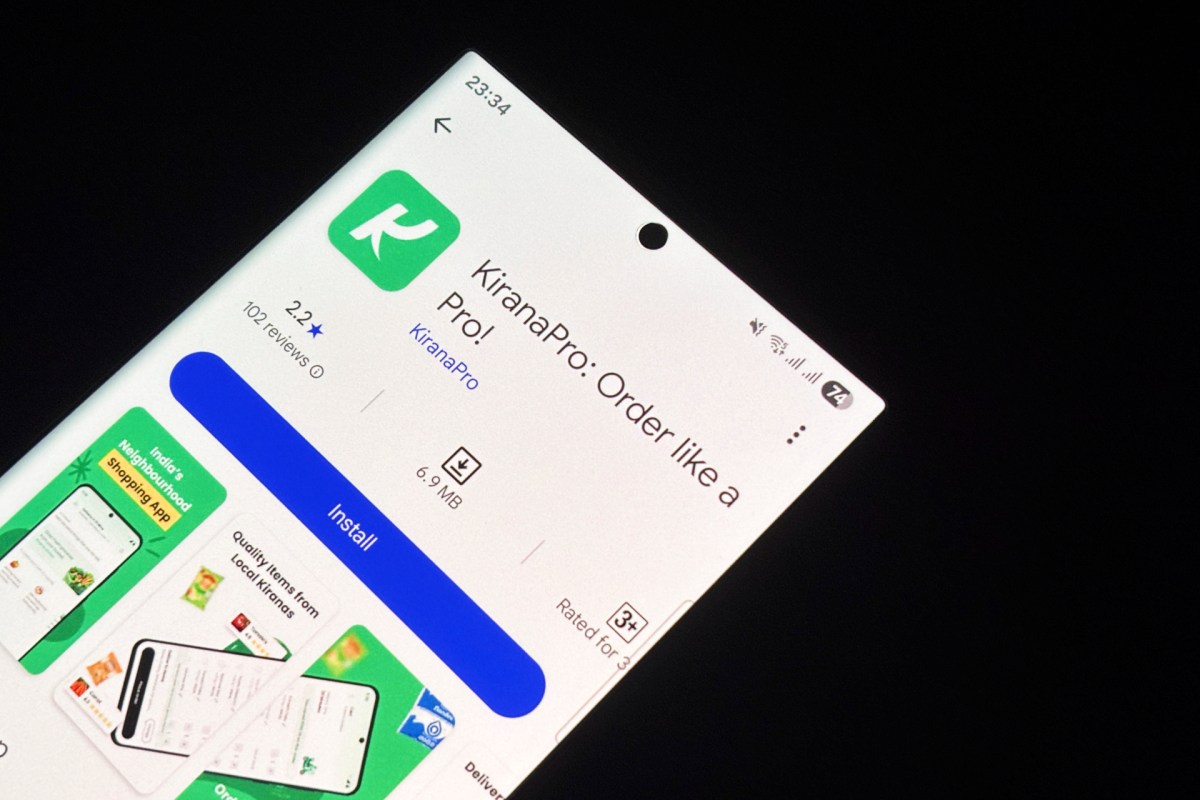
Indian grocery delivery startup KiranaPro’s recent data loss story has more holes than Swiss cheese, as the startup remains unclear whether the incident was an internal breach or an external hack.
Last week, the Bengaluru-based startup discovered that it could not access its back-end servers and that all its data, including its app code, had been deleted from GitHub. The startup on Friday blamed a former employee for the breach. However, in an interview, KiranaPro co-founder and CEO Deepak Ravindran conceded that the company had not deactivated the employee’s account after they departed the company and cannot rule out the possibility of subsequent malicious misuse of their account.
“If we go deeper, we have to do a real forensic investigation. We are going to talk [about] this with our board, the investors, and we are going to get a formal opinion on that also with our legal advisers,” Ravindran told TechCrunch.
Earlier on Friday, Ravindran claimed in a post on X that the incident that affected its data was an internal breach.
“After careful investigation, we conclude that this was not a hack. No external party penetrated our ordering or payment systems, exploited vulnerabilities, or bypassed security protocols,” he wrote.
The co-founder also explicitly shared a screenshot of a LinkedIn profile of one of KiranaPro’s former employees on X on Thursday, alleging that they had deleted the startup’s code. (TechCrunch is not sharing the post’s link, as the startup has yet to offer concrete proof supporting its position.)
“[T]his was an internal data breach. Specifically, it was the result of actions taken by a trusted internal employee who had legitimate access to our systems,” the co-founder wrote in his post on Friday. “This individual intentionally deleted critical server logs while they were being tested and/or edited, an action that goes directly against our policies, our principles, and the trust we place in our team.”
When TechCrunch asked if KiranaPro could rule out whether any third party had maliciously gained access to the former employee’s account, Ravindran could not.
“We have to do a complete forensic check on the company. We have to do the entire IP scan. We have to look at where the tracks happened. We have to check the computers, MacBooks, and whatever is used. Everything has to be done. Then we have to spend money … so, that’s why we decided not to,” he told TechCrunch.
Then what was the basis of Ravindran’s allegation? It was a GitHub response, a copy of which he shared with TechCrunch.
The response included a username, which Ravindran said was associated with the former employee.
“All we have is the emails that we got from GitHub, stating that [the former employee’s username] as an individual is the one who deleted the account. We haven’t done the investigation further,” Ravindran told TechCrunch.
Former employee’s account was never offboarded
Launched in late 2024, KiranaPro operates as a buyer app on the Indian government’s Open Network for Digital Commerce. The startup allows more than 55,000 customers in 50 cities to purchase groceries from their local shops and nearby supermarkets using its voice-based interface. The company also supports local language inputs, including English, Hindi, Malayalam, and Tamil.
Ravindran stated that they decided to call out the former employee based on the company’s “belief system,” as they claim the former employee deleted the data after their sudden termination.
However, the startup said it is not aware if there were enough protections on the former employee’s devices, such as multi-factor authentication, to restrict malicious third-party access, like malware.
The company confirmed it did not remove the employee’s access to its data and GitHub account following his departure.
“Employee offboarding was not being handled properly because there was no full-time HR,” KiranaPro’s chief technology officer, Saurav Kumar, confirmed to TechCrunch.
Company restores AWS account and GitHub data
Alongside its code saved in GitHub, KiranaPro also lost access to its Amazon Web Services (AWS) account, which included its customer data and their transaction details.
Ravindran told TechCrunch that the GitHub data was restored after getting its backup from one of their employees. The startup also regained access to its AWS account along with its customer data.
Both the co-founder and CTO said the AWS account was protected by multi-factor authentication, but neither could say how the account was accessed, as nobody else had physical access to Ravindran’s phone, which generates the multi-factor code.
Nonetheless, Ravindran claimed that the customer data stored in the AWS cloud remained intact and was not accessed by any third parties, nor was it downloaded by the former employee in question.
“Because if that is the case, I will get its notification on email or anything [sic],” he said.
That said, Ravindran stated that the startup has enough evidence to file a formal complaint with the police, but said that its investigation is ongoing.
The startup has also not fully paid its current employees, the company’s co-founder confirmed, soon after the company raised a seed round of ₹100 million Indian rupees (about $1.2 million), which Ravindran said has yet to be fully wired.
The startup counts Blume Ventures, Unpopular Ventures, and Turbostart among its institutional venture backers, as well as Olympic medalist PV Sindhu and Boston Consulting Group managing director Vikas Taneja among its angel investors. It has 15 employees located in Bengaluru and Kerala.
Keep reading the article on Tech Crunch
Meet the Finalists: VivaTech’s 5 Most Visionary Startups of 2025

Narrowing down the 30 most visionary startups of the year to just five finalists was no easy feat. VivaTech’s Innovation of the Year attracted an extraordinary pool of applicants—startups tackling massive global challenges with bold, technically sophisticated, and scalable solutions. From redefining human-machine interaction to revolutionizing healthcare, climate, and infrastructure, each company brought something unique to the table. The selection process was intense, and every startup that made it to the top 30 should be incredibly proud of what they’ve built.
VivaTech Innovation of the Year is debuting this year to celebrate and spotlight the trailblazing startups that are reshaping the future. This prestigious award is open to all exhibiting startups at VivaTech 2025 and recognizes one startup that has demonstrated exceptional creativity, technological ingenuity, and the potential to transform its industry.
Now, we’re excited to reveal the five finalists who will take the stage live at VivaTech 2025:
BeyondMath: the world’s first generative physics platform, replacing slow, expensive simulations with real-time, AI-powered physics. Engineers can run 1000x faster simulations, test thousands of designs instantly, and cut time, cost, and complexity.
Chipiron: building the first light, low-cost MRI using ultra-low magnetic fields without sacrificing image quality. Their goal: make MRI 100x more accessible and enable early, large-scale screening—like a blood test for everyone.
Enerdrape: offers the world’s first non-invasive geothermal panels that transform underground spaces—like car parks and tunnels—into renewable heating and cooling sources, enabling fast, low-carbon retrofits without drilling in dense urban environments.
Hua Tech International: an automated microfluidic platform integrating a nanostructured semiconductor biochip, multiplex fluorescence staining, and AI analysis to precisely capture, identify, and analyze rare circulating cells for cancer diagnostics.
Lumisync: data centers to synchronize their data flow at the speed of light with the world’s 1st 100% photonic oscillator to reduce their latency and energy consumption by 1000x.
These standout companies will pitch their solutions during the Final of the VivaTech Innovation of the Year on Wednesday, June 11th at 1:35 PM, live on the Pitch Studio Stage. Each pitch will be followed by a Q&A session with a panel of expert judges including TechCrunch’s own Jeff Taylor, Jaja Liao of 25madison, Shabir Vasram of Daphni and Howard Wright of NVIDIA.
The winner of Innovation of the Year will be announced the following day at the VivaTech Global Awards Ceremony on Thursday, June 12th at 5:45 PM on Stage 1. In addition to the title, the winning startup will receive a free Startup Corner at VivaTech 2026 and a coveted spot in the TechCrunch Startup Battlefield 200.
The Ceremony will also spotlight the four other VivaTech Awards and announce the winners of each.
- The Female Founder Challenge, celebrating the women leading innovative startups that are driving the disruptive technologies shaping the future.
- The Africatech Awards, this pan-African initiative recognizes and supports startups striving to make a positive impact in three important areas – GreenTech, HealthTech, and E-commerce / FinTech.
- The Next Startupper Challenge, the inter-school and university award for the new generation of entrepreneurs working on impactful projects to make their dreams a reality.
- The Tech For Change Award, launched this year alongside VivaTech Innovation of The Year, recognizing startups that place positive impact at the heart of their business model.
Stay tuned—we can’t wait to see these groundbreaking founders take the spotlight.
Keep reading the article on Tech Crunch
Trump fast-tracks supersonic travel, amid spate of flight-related executive orders

President Donald Trump signed an executive order Friday that directs the Federal Aviation Administration to lift the 52-year ban on supersonic flight over U.S. soil, marking a major policy shift that occurred just weeks after lawmakers introduced bipartisan legislation with the same aim. The order instructs the FAA to end the overland supersonic ban and create noise-based certification standards, allowing faster-than-sound travel as long as no audible sonic boom reaches the ground.
“The reality is that Americans should be able to fly from New York to LA in under four hours,” Michael Kratsios, the director of the White House Office of Science and Technology Policy, told reporters Friday.
The move could help accelerate commercial supersonic flight development, including efforts by Boom Supersonic. In January, Boom’s XB-1 demonstrator became the first privately developed civil aircraft to break the sound barrier over the continental U.S.
Asked for comment Friday, Boom CEO Blake Scholl wrote “Booooom!” in an email to TechCrunch. Added Scholl, “The sound barrier was never physical — it was regulatory. With supersonic legalized, the return of supersonic passenger air travel is just a matter of time.”
Trump also signed two other future-of-flight executive orders Friday: one to speed up drone commercialization and electric vertical takeoff vehicle development, and another to establish a federal task force on drone flight restrictions.
Keep reading the article on Tech Crunch
TechCrunch Mobility: How Jony Ive’s LoveFrom helped Rivian and what Uber’s next-generation playbook looks like
Welcome back to TechCrunch Mobility — your central hub for news and insights on the future of transportation. Sign up here for free — just click TechCrunch Mobility!
I’ve spent a decade covering Tesla and CEO Elon Musk, so it would be natural for me to weigh in here about the billionaire’s public fallout with President Donald Trump. Plenty of other reporters, armchair analysts, influencers, and bloggers have already done that. Some of it is smart, while some of it misses the mark — by miles.
Since I have the benefit of institutional knowledge, and a helluva good memory, let me offer some brief reminders and predictions. We’ve been here before — Musk has a long, well-documented history of creating seemingly strong alliances and then burning it all down.
As senior reporter Tim De Chant noted, Elon is getting an introduction to politics. The problem here is that Musk also embraces risk and gravitas — which means that learning something doesn’t equate to his behavior changing.
Expect a roller-coaster ride of tentative peace followed by public outbursts. Rinse. Repeat.
The implications of this fallout promise to be broad and will likely touch all of Musk’s various enterprises. I will be monitoring how Tesla EV sales numbers fare and how the “Big, Beautiful Bill” will actually affect the automaker’s business if it is passed into law.
In the short term, I will be focused on Tesla’s great robotaxi experiment in Austin, Texas, and how Musk’s complicated and increasingly toxic relationship with the Trump administration affects his dealings with the Department of Transportation. Prior to his public breakup with Trump, Musk was lobbying lawmakers on legislation related to autonomous vehicles — specifically over a bill introduced on May 15 called the Autonomous Vehicle Acceleration Act.
A little bird

Ever since Rivian spun out Also, a micromobility startup that also received backing from Eclipse Ventures, we’ve been poking around to find out more. A few little birds have been in touch and helped us better understand how the skunkworks program turned into a stand-alone company; they also revealed a surprising detail: Jony Ive’s creative firm LoveFrom worked alongside Rivian’s design team and the staff under the skunkworks program. Senior reporter Sean O’Kane and I have the full scoop here.
Got a tip for us? Email Kirsten Korosec at kirsten.korosec@techcrunch.com or my Signal at kkorosec.07, Sean O’Kane at sean.okane@techcrunch.com, or Rebecca Bellan at rebecca.bellan@techcrunch.com. Or check out these instructions to learn how to contact us via encrypted messaging apps or SecureDrop.
Deals!

Memorandums of understanding rarely grab my attention. But this one did.
Joby Aviation and Saudi Arabian conglomerate Abdul Latif Jameel signed a memorandum of understanding to explore a distribution agreement for up to 200 electric aircraft. The tentative deal is notable because Abdul Latif Jameel is already an investor of Joby.
If finalized, the partnership could provide Joby with a fast path to monetizing its electric vertical takeoff and landing vehicles in Saudi Arabia. Turning an investor into a customer can complicate the relationship, too (just ask Amazon and Rivian.)
Other deals worth noting …
Obvio, a California-based startup that is combining AI with cameras placed at stop signs to root out unsafe driving behavior, raised $22 million in a Series A funding round led by Bain Capital Ventures. Obvio plans to use those funds to expand beyond the first five cities where it’s currently operating in Maryland.
Portless, an e-commerce fulfillment and logistics startup, raised $18 million in a funding round led by Commerce Ventures, with participation from eGateway Capital, Ground Up Ventures, and FJ Labs. Portless uses a Shein-like business model and charges brands duties after an item sells, helping defer the cost of tariffs.
Toma, an AI voice startup that is applying its tools to car dealerships, raised $17 million across a seed and Series A round led by a16z. Y Combinator (Toma was in YC’s January 2024 cohort), the Scale Angels Fund, and auto industry influencer Yossi Levi, also known as the Car Dealership Guy, have backed the startup.
What Uber’s executive shuffling is telling us
Recent executive shuffling coupled with comments by Uber CEO Dara Khosrowshahi don’t just hint at the company’s strategy. Nope, this is like a neon blinking sign and the word “autonomy” is at the center.
Earlier this week, Uber announced it had appointed Andrew “Mac” Macdonald as president and chief operating officer. The company also announced the departure of Pierre-Dimitri Gore-Coty, who ran Uber’s delivery business.
Gore-Coty’s responsibilities will slot under Macdonald, who has been with the company since 2012 and most recently led the mobility and business operations. Another tidbit worth mentioning: He launched Uber’s Toronto operations 13 years ago and spearheaded its autonomous strategy.
Mac’s new role will combine mobility, delivery, and autonomy.
At a Bloomberg conference, Khosrowshahi was asked about AVs. He talked about building the AV ecosystem and Uber’s stakes in companies (Aurora and Waabi) developing autonomous vehicle technology.
“We want to essentially support the AV ecosystem and continue to help that ecosystem develop and then AVs penetrate into the marketplace,” he said. “AVs, we think, represent a safer way of transportation. Ultimately, we think it’ll expand the marketplace as it makes kind of safe transportation cities available to everybody.”
In other Uber news, the company has added a new type of account with a simpler UI for older people.
Notable reads and other tidbits

Autonomous vehicles
Tesla filed trademark applications for the term “Tesla Robotaxi” after the company’s previous attempts to secure trademarks for its planned self-driving vehicle service hit roadblocks.
Electric vehicles, batteries, & charging
I missed this story from Axios reporter Katie Fehrenbacher and wanted to mention it here. Last year, Redwood Materials quietly walked away from the Department of Energy (DOE) loan it had received conditional approval for. To date, Redwood has never received any federal funding.
I reached out to Redwood to understand why. Redwood initially applied for a DOE loan in 2021. The process dragged on and at considerable cost to Redwood. Companies that go through this process are responsible for paying the third-party consultants and experts hired to vet the business and technology. By 2024, Redwood was still on the conditional approval limbo. While it was waiting, the company raised more than $2 billion in private funding and generated nearly $200 million in revenue last year.
Ultimately, Redwood determined that the costs and constraints of this loan outweighed its value.
Future of flight
Walmart and Alphabet’s Wing are bringing drone delivery to thousands more customers. Wing, which already operates out of 18 Walmart Supercenters in the Dallas-Forth Worth area, is setting up shop in five more U.S. cities through the partnership. In all, more than 100 stores will be added in Atlanta, Charlotte, Houston, Orlando, and Tampa.
People
Trevor Milton, the recently pardoned founder of Nikola, has been fighting a subpoena from the creditors of his bankrupt electric trucking company. Milton owed Nikola nearly $100 million before it filed for bankruptcy in February, which followed an arbitration case with the company in 2023 related to his criminal conviction that he lost.
Keep reading the article on Tech Crunch
Omada Health IPO signals healthier market, avoids ‘down-round’ trend
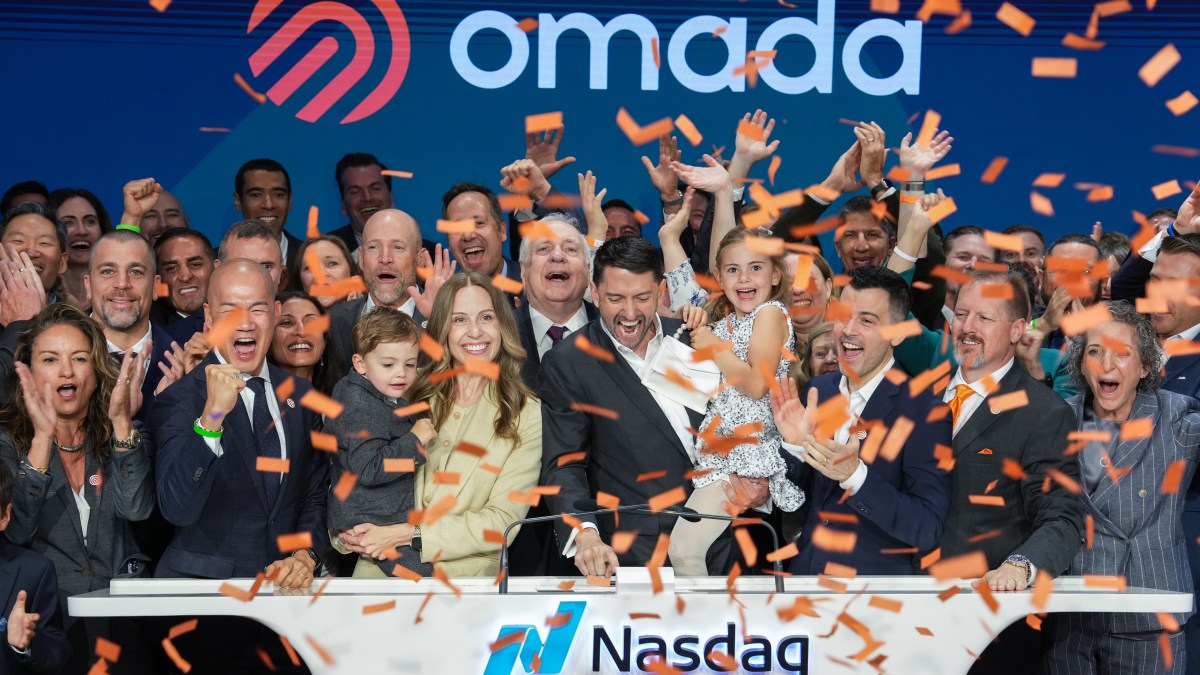
The IPO market is starting to feel healthier.
Omada Health, a 14-year-old company providing virtual care for chronic conditions like diabetes and hypertension between office visits, closed its first trading day on Friday at $23 a share, a 21% jump from the IPO price of $19.
The IPO valued the company just above $1 billion (excluding employee options), a figure that’s nearly identical to Omada’s last private valuation of $1 billion set in its previous VC round. The debut is one of the first among recent IPOs that was not a so-called down-round. Many of the latest public listings, including Hinge, ServiceTitan, and Reddit, priced below their private market highs, though have faired well as public companies.
For founder and CEO Sean Duffy, the successful public offering validates his decision to start a company that he believed the market desperately needed. In 2011, he dropped out of Harvard Medical School after realizing that chronic illness patients required more continuous support than the existing healthcare system delivered.
Before the offering, he owned 4.1% of the company, according to Omada’s offering document. Other significant shareholders included Revelation Partners (10.9%), US Venture Partners (9.9%), Andreessen Horowitz (9.6%), and FMR (9.3%).
Duffy told TechCrunch that over his 14-year journey as a founder, he had many harrowing moments.
“I didn’t think our series A was going to come together because we were working on this commercial deal that didn’t materialize, and that spooked one investor,” he said.
“As a young business, something tries to kill you every month,” he continued. “And then as the business grows, it turns into like every quarter or six months, year, two years.”
One of the recent challenges for many digital health businesses is navigating the “collapse” of the market post-COVID boom. Omada navigated the turbulent times by seeking new, rising markets. It recently expanded its offerings to include diet management support for GLP-1 patients.
Keep reading the article on Tech Crunch
2025 will be a ‘pivotal year’ for Meta’s augmented and virtual reality, says CTO
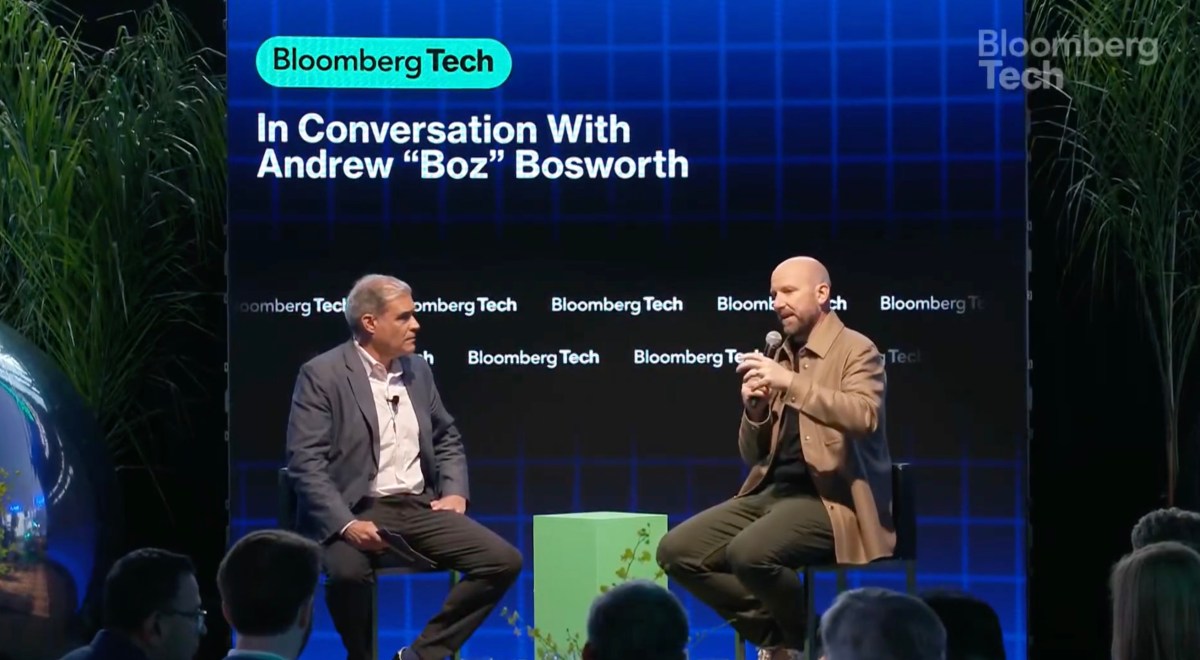
Meta CTO Andrew “Boz” Bosworth, who was one of the company’s first 15 engineers, published a memo earlier this year forecasting that 2025 could be the year of greatness for Reality Labs, the company’s augmented and virtual reality unit. Or, it would be the year when the metaverse goes down as a “legendary misadventure.”
These days, Boz appears to be leaning towards its potential for greatness. But, the market will be the final determinant.
“We’ll judge at the end of the decade, but this does feel like the pivotal year,” Boz said Thursday during a Bloomberg Technology interview.
Boz noted that Meta’s Ray Ban AI glasses had been a breakthrough that excited both consumers and competitors. As of February, Meta has sold more than 2 million pairs since their October 2023 debut. Last fall, they outsold traditional Ray Bans, even before Meta rolled out AI features.
Meanwhile, Google last month announced partnerships with Gentle Monster and Warby Parker to create smart glasses based on Android XR. Apple is also reportedly making a push to release smart glasses in 2026.
“Suddenly, we go from toiling in the realms of obscurity to being very much in the world with a product that is very attractive to consumers, and thus competitors,” Boz said. “The clock has started on competition coming, and that just means that the progress we make in this year is of disproportionate value to any year before or after it closes.”
Still, competition among other incumbents means nothing if the market doesn’t adopt Meta’s AR and VR products, which is what would drive the industry to standardize the technology.
“The market is actually, especially when it comes to hardware, a trailing indicator,” Boz said. “So you look for early indicators. To some degree, you do have to have a level of confidence and taste in-house.”
He said this was something he learned from Sheryl Sandberg, former chief operating officer at Meta.
“Sheryl used to always talk about how most companies don’t fail because they got beaten by a competitor,” Boz said. “Most companies fail because they didn’t execute their own plan correctly. And so what I try to do with the team is really focus us, not so much on the competitive landscape as on [whether] we’re executing to our standards.”
The Meta CTO said the company has “a set of ambitious plans for the year” that it is on track for.
“What we’ll know by the end of the year is whether we executed on our plan or not,” said Boz. “What we’ll know in five years time is whether that was enough.”
Keep reading the article on Tech Crunch
Why investing in growth-stage AI startups is getting riskier and more complicated
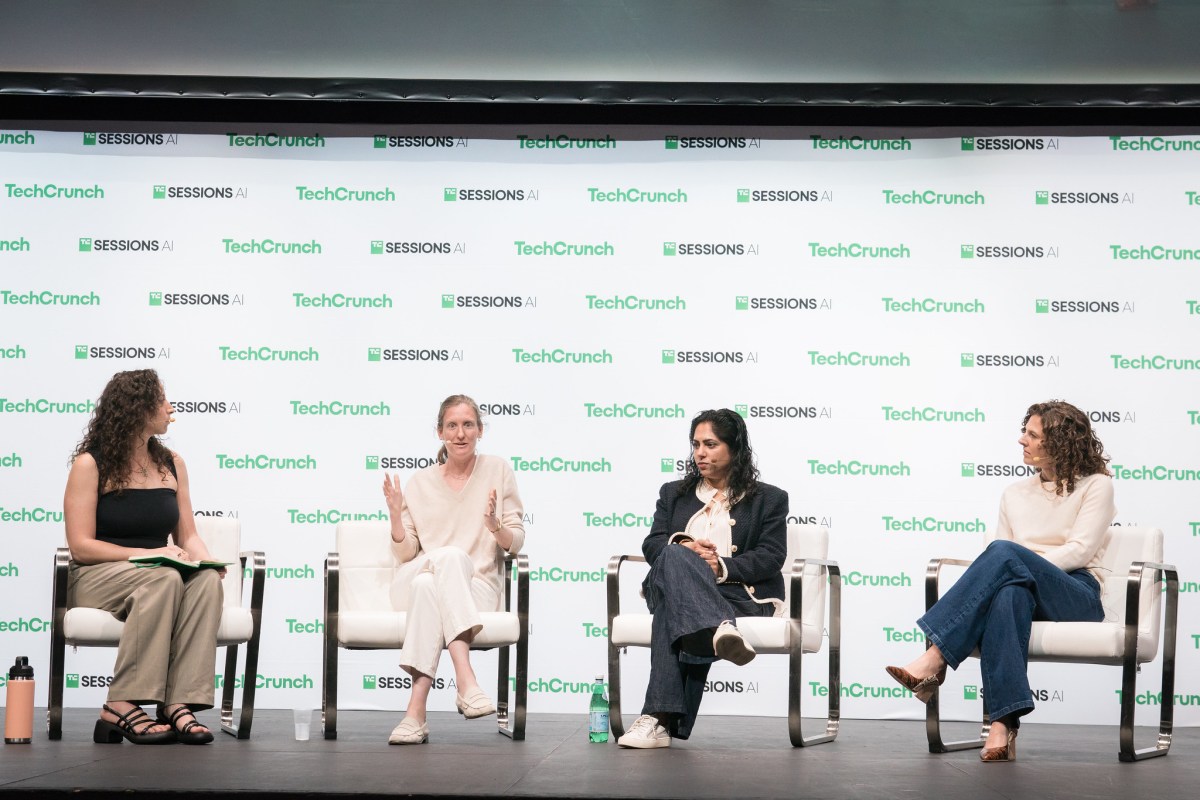
Making a bet on AI startups has never been so exciting — or more risky. Incumbents like OpenAI, Microsoft, and Google are scaling their capabilities fast to swallow many of the offerings of smaller companies. At the same time, new startups are reaching the growth stage much faster than they historically have.
But defining “growth stage” in AI startups is not so cut-and-dried today.
Jill Chase, partner at CapitalG, said on stage at TechCrunch AI Sessions that she’s seeing more companies that are only a year old, yet have already reached tens of millions in annual recurring revenue and more than $1 billion in valuation. While those companies might be defined as mature due to their valuation and revenue generation, they often lack much of the necessary safety, hiring, and executive infrastructure.
“On one hand, that’s really exciting. It represents this brand new trend of extremely fast growth, which is awesome,” Chase said. “On the other hand, it’s a little bit scary because I’m gonna pay at an $X billion valuation for this company that didn’t exist 12 months ago, and things are changing so quickly.”
“Who knows who is in a garage somewhere, maybe in this audience somewhere, starting a company that in 12 months will be a lot better than this one I’m investing in that’s at $50 million ARR today,” Chase continued. “So it’s made growth investing a little confusing.”
To cut through the noise, Chase said it’s important for investors to feel good about the category and the “ability of the founder to very quickly adapt and see around corners.”
She noted that AI coding startup Cursor is a great example of a company that “jumped on the exact right use case of AI code generation that was available and possible given the technology at the time.”
However, Cursor will need to work to maintain its edge.
“There will be, by the end of this year, AI software engineers,” Chase said. “In that scenario, what Cursor has today is going to be a little less relevant. It is incumbent on the Cursor team to see that future and to think, okay, how do I start building my product so that when those models come out and are much more powerful, the product surface represents those and I can very quickly plug those in and switch into that state of code generation?”
Keep reading the article on Tech Crunch
Anthropic appoints a national security expert to its governing trust

A day after announcing new AI models designed for U.S. national security applications, Anthropic has appointed a national security expert, Richard Fontaine, to its long-term benefit trust.
Anthropic’s long-term benefit trust is a governance mechanism that Anthropic claims helps it promote safety over profit, and which has the power to elect some of the company’s board of directors. The trust’s other members include Centre for Effective Altruism CEO Zachary Robinson, Clinton Health Access Initiative CEO Neil Buddy Shah, and Evidence Action President Kanika Bahl.
In a statement, Anthropic CEO Dario Amodei said that Fontaine’s hiring will “[strengthen] the trust’s ability to guide Anthropic through complex decisions” about AI as it relates to security.
“Richard’s expertise comes at a critical time as advanced AI capabilities increasingly intersect with national security considerations,” Amodei continued. “I’ve long believed that ensuring democratic nations maintain leadership in responsible AI development is essential for both global security and the common good.”
Fontaine, who as a trustee won’t have a financial stake in Anthropic, previously served as a foreign policy adviser to the late Sen. John McCain and was an adjunct professor at Georgetown teaching security studies. For more than six years, he led the Center for A New American Security, a national security think tank based in Washington, D.C., as its president.
Anthropic has increasingly engaged U.S. national security customers as it looks for new sources of revenue. In November, the company teamed up with Palantir and AWS, the cloud computing division of Anthropic’s major partner and investor, Amazon, to sell Anthropic’s AI to defense customers.
To be clear, Anthropic isn’t the only top AI lab going after defense contracts. OpenAI is seeking to establish a closer relationship with the U.S. Defense Department, and Meta recently revealed that it’s making its Llama models available to defense partners. Meanwhile, Google is refining a version of its Gemini AI capable of working within classified environments, and Cohere, which primarily builds AI products for businesses, is also collaborating with Palantir to deploy its AI models.
Fontaine’s hiring comes as Anthropic beefs up its executive ranks. In May, the company named Netflix co-founder Reed Hastings to its board.
Keep reading the article on Tech Crunch
AI startups continue fueling San Francisco’s office recovery

Early-stage AI startups are imbuing new life into San Francisco’s Northern Waterfront, after years of “for lease” signs dotting the post-pandemic landscape. According to the San Francisco Business Times, five AI-focused companies — four backed by Y Combinator — recently leased 23,900 square feet at the Waterfront Plaza complex. This is part of a citywide trend: AI firms are one of the few sectors expanding in San Francisco, accounting for 1.6 million square feet leased last year and now occupying 5 million total. (Unsurprisingly, OpenAI accounts for a sizable chunk of that overall figure.)
Real estate services firm CBRE projects that these scrappy startups could reach 21 million in square feet within five years, potentially halving the city’s current 35.8% vacancy rate and creating tens of thousands of jobs. “It could fundamentally change the vibrancy of downtown,” CBRE analyst Colin Yasukochi tells the outlet. Waterfront Plaza is a five-building campus totaling 442,000 square feet; among its past tenants is WeWork.
Keep reading the article on Tech Crunch
Tesla’s Optimus robot VP is reportedly leaving the company
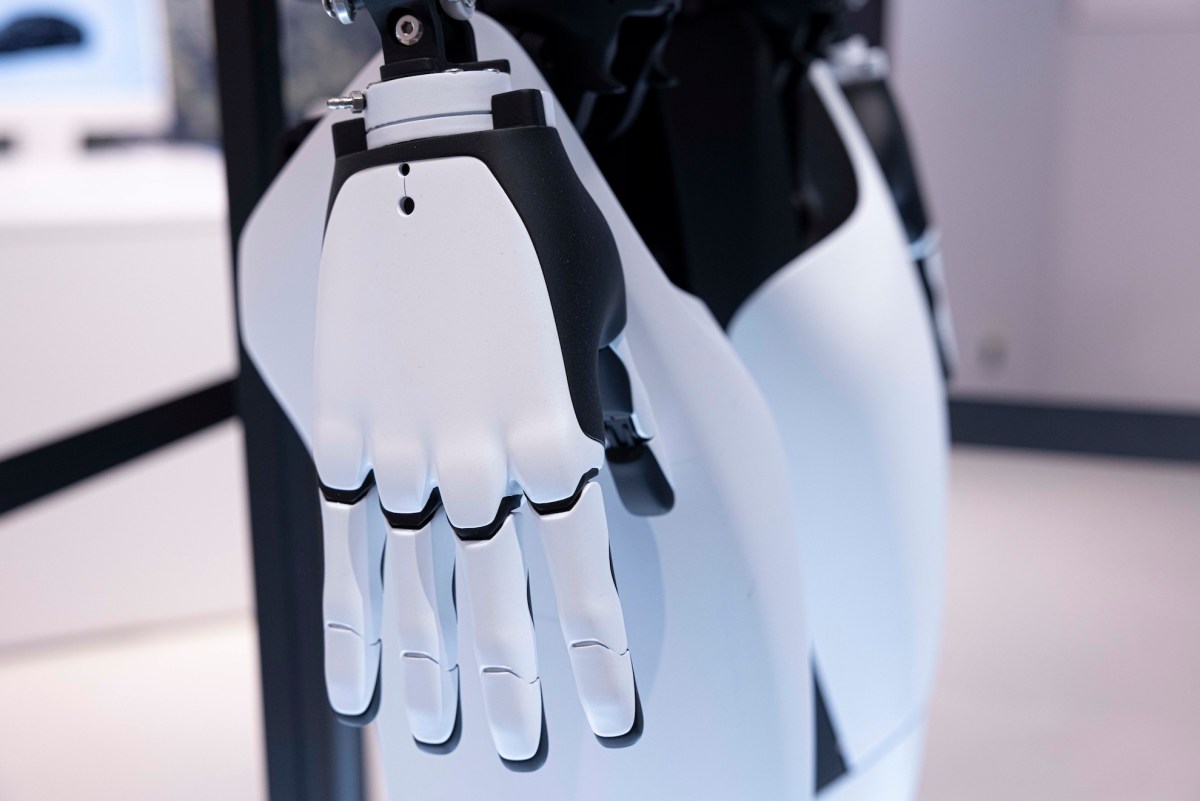
The head of Tesla’s Optimus humanoid robot program, Milan Kovac, is leaving the company according to Bloomberg News.
The departure comes as Tesla CEO Elon Musk has claimed the company will have “thousands” of Optimus robots operating in its factories by the end of this year. “And we expect to scale Optimus up faster than any product, I think, in history, to get to millions of units per year as soon as possible,” Musk said last month.
Kovac has worked at Tesla for nearly 10 years, with much of that time coming as a top engineer on the Autopilot team. He was tapped to help lead development of Optimus in 2022 and became a vice president overseeing the program in late 2024.
“I’m driving the Optimus program (Tesla’s humanoid robot) & all its engineering teams,” Kovac previously wrote on his LinkedIn profile. “Separately, I’m also driving the engineering teams responsible for all the software foundations & infrastructure common between Optimus and Autopilot.”
Ashok Elluswamy, the vice president of Tesla’s AI software division, will take over the Optimus project according to Bloomberg.
Keep reading the article on Tech Crunch



